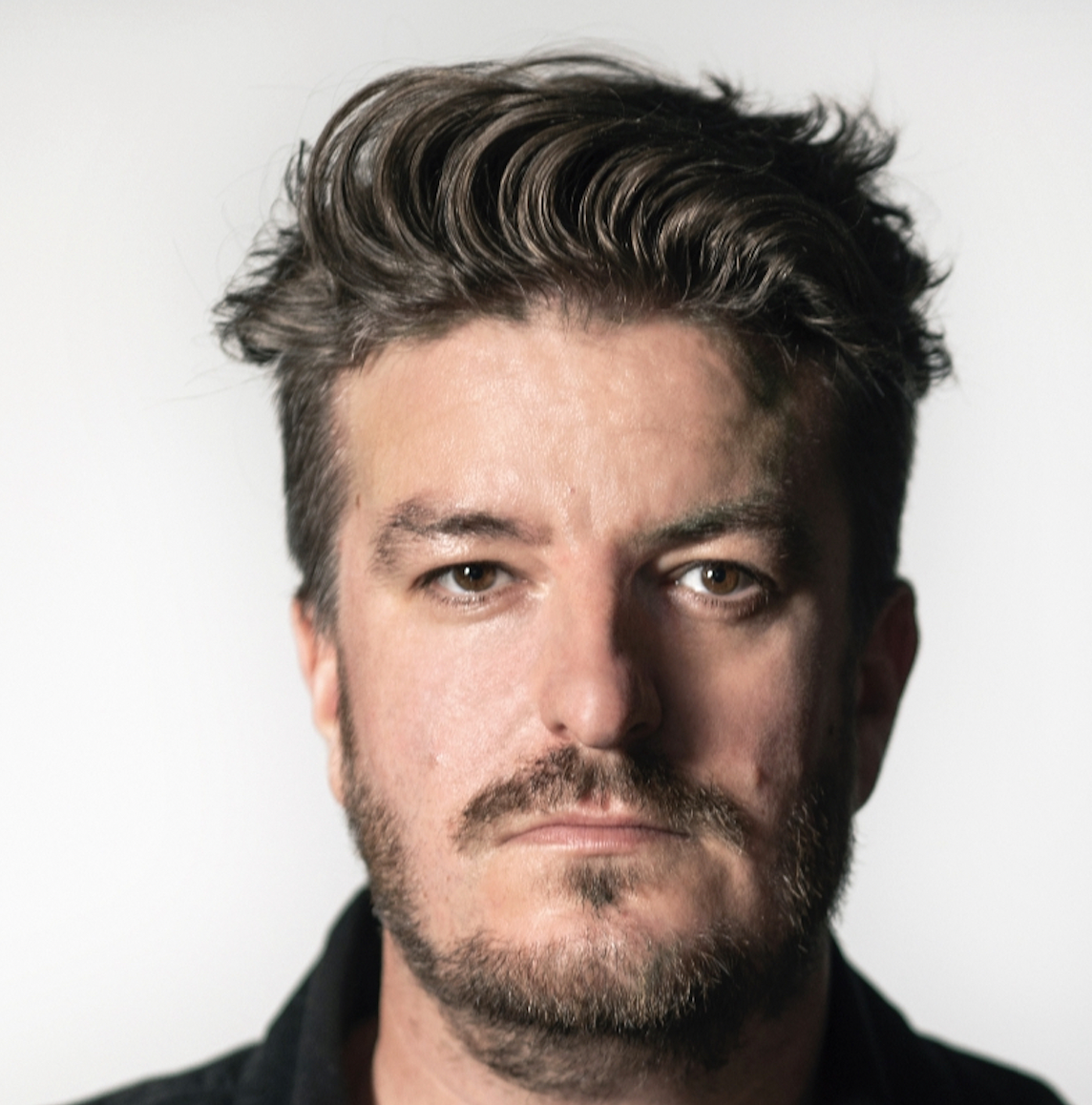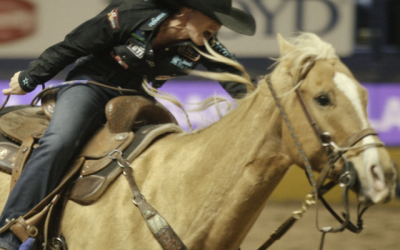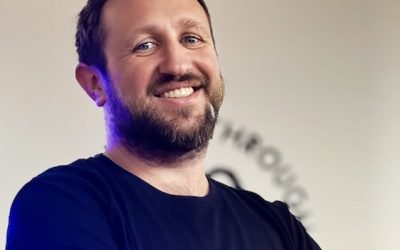Matt Campion is creative director and co-founder of Spirit Studios, a cross-platform production company supported by Channel 4’s indie growth fund. Under Campion’s stewardship, Spirit has created TV series such as ITV’s The Stand Up Sketch Show and digital first channels including The Lion Whisperer. A booming podcast division is known for hit series including Private Parts with Jamie Laing and Francis Boulle and Vicky Pattison’s The Secret To…
This week, Campion tells The Drop about Spirit Studios’ 13-year voyage of discovery. He describes how the company has developed a platform agnostic structure to support the monetisation and marketing of its brands. With C4’s backing, he explains how the business is poised to ramp up content creation.
So, Matt, you started out as a child actor on TV?
MC: Yes, that was my entry point into the industry. I did maybe 40 shows of different descriptions. That was how I got to know all of the job roles. When I got to career age, I had to make a decision about whether I wanted to be an out of work actor or do something with a bit more security. I decided on the latter and went to Ravensbourne, where I got a multi-skilled background. In hindsight, I got lucky because I was a ‘xennial’, which means I came into the business during the analogue to digital crossover. I learned all of the traditional TV skills – directing, editing, camera etc – but wasn’t afraid of new technology.
How did that manifest itself in terms of your early career?
MC: In my mid-20s, I landed a job at Endemol, where I worked as a series producer and executive producer. While I was there, I helped launch an interactive games channel – using red button technology. It was quite a complicated process, but it was an early insight into the way the business was heading. In 2009, I formed my own company, The Ideas Factory. I started getting obsessed with social media – and was doing stuff like building Facebook pages for brands. During that time, I realised that the emerging digital model involved a lot of the same skillsets that I’d developed over the years.
Then came Spirit…
MC: Around 2011, I started doing some projects with Peter Cowley, who I had met during my time at Endemol. After a few months we decided to go into business together – which is how Spirit was formed. At that time, it was Spirit Digital Media and we did all sorts of things. We built the social media content for brands like Who Wants To Be A Millionaire? and we helped build Jamie Oliver’s Food Tube. We also did some branded content and movie marketing. Then, a few years in, we partnered with Monkey Kingdom to create a spin off show from Made in Chelsea. That was multi-camera, live TV but on Channel4.com – with live social media integration. After that, we really went for it and made loads of shows like for platform partners like Yahoo. We did a show called Strip Jamie (featuring Made In Chelsea’s Jamie Laing) which trended really strongly on social media. That was partly because we had worked out what it took to create velocity in audience growth on platforms like Twitter.
But in addition to digital-first content, you were also building a TV slate?
MC: Yes, shows like Trigger Happy TV and The Stand Up Sketch Show are an important part of our business model. I think Peter and I sensed a long time ago how the business would evolve. Our view has always been that companies need to build diverse revenue streams across digital & TV to survive. The key is being able to build brands that stand out in a crowded marketplace, and then knowing how to market and monetise them across platforms.
How does the structure of Spirit Studios look today?
MC: We’ve organised around four divisions: original programmes, our podcasts network, platform and audience development and branded content. The idea is that all of these divisions collaborate around ideas, talent and our central ethos, which is brands that are powered by spirit. All of our creative thinking and development is built around an ethos of ‘funny and feeling’.
So it’s not really accurate to think of you as digital first?
MC: At that start that is how we would have seen ourselves. But these days we’re more platform agnostic. The company ethos is the key to how we operate – and that means we can make whatever we want, wherever we want. Probably the biggest different between us and a traditional indie producer is that we have digital capabilities baked into the business, so even if an idea starts as a TV commission we have a clear strategy for making it a 360-degree experience. We see it as a factory model. The IP comes in via the development team and then we can do short form or long form, drama or documentary, podcast etc.
When you get the greenlight on a TV show, does your approach enables you to trigger digital engagement quicker than a traditional indie?
MC: That’s pretty much how we have structured the business – to ensure we are ready to go across all platforms right from the start. The Stand Up Sketch Show is a good example. We do all the social media marketing and generate around 50 million views a series. What I would say, however, is that we don’t go into a commissioner pitching the full 360 proposal. What they want to hear is the big idea – all of the other stuff just confuses and distracts them.
Are all your ideas originals?
MC: Not always. We option rights – but when we do we’ll try and get TV, film and audio at the same time. Occasionally we will also partner with someone that comes to us with a great idea – perhaps a talent-led concept. Whatever the approach, the idea has to have a genuine USP and be a Spirit show.
In practical terms, where would a Spirit-originated idea first see the light of day? Could it be birthed as a short-form series on YouTube?
MC: We have made a lot of digital-first content for platforms like YouTube over the years, but I think the recent challenges at Vice and Buzzfeed show that market has moved on. For us, the most likely routes to market for our brands are to start with a TV commission or as a self-commissioned video podcast. We aim to be a major player in the production of video-enabled podcasts.
What about the idea of adapting a YouTube series for TV?
MC: A couple of years ago, I would probably have said that was possible. But I don’t think it really happens much. I think it’s highly unlikely that you can make a show for YouTube and expect it to get picked up by a TV commissioner.
You’ve built your credentials in comedy and entertainment. Is that still the sweet spot for Spirit or are you looking at other genres?
MC: Comedy and entertainment are great genres for creating content that impacts on people’s lives. But we also see room to create dramas that deliver purpose. We have some exciting scripted projects coming to fruition in the near future, but it’s too early for us to provide details at this stage.
How does branded content fit in?
MC: It’s one of our four divisions, but I wouldn’t say we go after this area very aggressively. That said, we have the skillsets to make branded content and we have good relationships with agencies. Over the years, we have worked with brands like HSBC, Samsung, Bose, The National Lottery, Crisis, and Mattel.
For a while you were part of Kew Media. But after Kew collapsed you re-established ownership. Since then, you have received backing from Channel 4. What difference has C4’s involvement made to the business?
MC: Channel Four invested 18 months ago, and it’s made such a difference, not just in terms of cash, but because of the values they represent. C4’s involvement has also given us the confidence to grow. That is reflected in the kind of people we can hire and the infrastructure we are building.
What does the studio consist of today in terms of personnel?
MC: It’s quite a big team compared to a traditional indie. There’s probably about 25 on staff – increasing when we bring in freelance teams. The size of the business really reflects all our different production divisions. The podcast team is quite big and there are roles related to commerce and social media managers. We also currently have five in the development team including me.
Aside from technical skills, what do you look for?
MC: A certain kind of mentality. We hire people that can get their head around diverse business models, then know how to hustle and grow them further. A good example is Millie Weber, who joined us as head of digital last October. She came from Gleam Futures and has a strong vision about how we can take what we are doing and improve monetisation. She’s doing a great job, but I don’t think it’s a traditional role. I would also add that you have to be really entrepreneurial to succeed in this space. Spirit is not like the traditional indie model where the business is built around production fees and rights distribution. Here, we live or die by our ability to monetise via multiple revenue streams.
A lot of digital first creators and influencers are exploring merchandise spin-offs. Is that kind of revenue stream on Spirit Studios’ radar?
MC: It’s an interesting business model. We do a bit of merchandising through our Lion Whisperer channel. But my gut feeling is that we would need to build a global brand like The X Factor for it to really be viable. There’s a lot of competition out there, with everybody from social media group Sidemen to Milly Bobby Brown (Stranger Things) doing something in that arena.
Any other potential revenue streams?
MC: You have to keep evolving and keeping up with the times. So, as an example, our podcasts are so well-produced that they look almost hour long chat shows. So perhaps FAST TV becomes an outlet. Or TV distribution.
Tell us about your social channels
MC: Our two main channels are Lion Whisperer TV, created with Kevin Richardson, and #IAMWHOLE, a mental health platform. They are both good examples of how we like to create ‘social channels with spirit’. Lion Whisperer runs across several social platforms and now has around six million followers. It does really well on its own through digital monetisation, but echoing my earlier point we’re now starting to gain traction with TV and film propositions based on the platform. We’ve seen something similar with #IAMWHOLE, which was the inspiration for Comedy Against Living Miserably, a comedy we made for Dave.
These channels are now well-established. Would you launch them in the same way today – or has your approach to digital media evolved?
MC: There’s nothing to stop us launching a new YouTube channel today. But I suppose our current approach might be to start with a video podcast, then launch social media channels off the back of it, depending on audience demo. What we’ve learned is that a podcast is a brilliant way to generate an hour or more worth of content every week. It can be listened to on podcast platforms, it can sit on Spotify or it can be watched on YouTube. At the same time, we can create social assets that work across platforms like TikTok and Instagram.
You have a solid structure in place and commissions in the pipeline. But what are your priorities to ensure you achieve sustainable growth?
MC: I’m thinking a lot about how we join the dots between our various activities across the group. How do we exploit our IP as effectively as possible? Is our infrastructure and hierarchy as efficient as it could be?
Looking ahead, do you feel in good shape?
MC: We’re very aware that these are difficult times for the digital and TV industries, but I’m excited about the next two or three years. The seeds have been planted, and with Channel Four behind us we’re well positioned to deliver some big shows across genres. We’ve got to be really mindful of where we are as a business and make sure we’re doing everything we can to avert any issues. But I really believe Studios Spirit is at a tipping point.
What about trends? Are there any areas you are especially interested in?
MC: We are definitely watching the TikTok platform closely because of its rapid audience growth. And I’m interested in digital first creators moving into digital formats. Brandon B with This Show Will Self Destruct, for example, or some of the shows Sidemen are creating. I’ve always been excited by new innovations in media and I’m interested in how that business model evolves.





